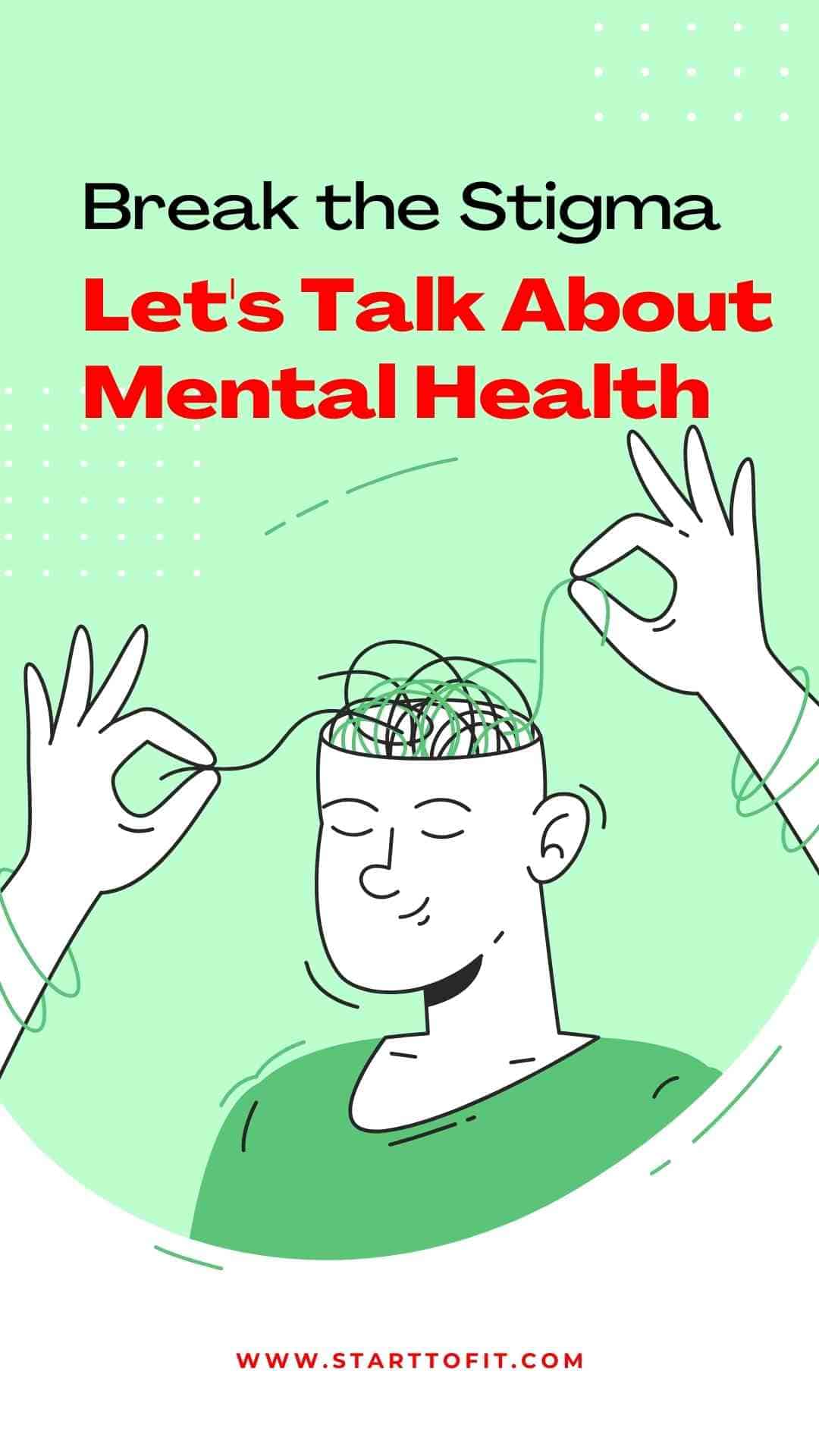
10 Essential Tips for Students to Cope with Exam Stress and Boost Mental Wellness
As students navigate through the demanding academic landscape, the pressure of exams can often take a toll on their mental well-being. In the quest for academic success, prioritizing mental wellness is paramount.
Enter “10 Essential Tips for Students to Cope with Exam Stress and Boost Mental Wellness” – a comprehensive guide tailored to equip students with strategies to combat stress and nurture their mental health. From effective time management techniques to mindfulness practices, this article serves as a lifeline for students seeking to strike a harmonious balance between academic excellence and mental wellness.
Discover how small yet impactful changes in daily routines can lead to significant improvements in managing exam stress and promoting a healthy mindset. Empower yourself with practical tips that not only alleviate exam pressures but also foster a positive approach towards overall well-being.
Understanding Exam Stress and Its Impact on Mental Wellness
Exam stress is a common phenomenon that affects students across various educational levels. The pressure to perform well can lead to a myriad of emotional and physical reactions, ranging from anxiety and fear to insomnia and headaches.
This stress is often exacerbated by high expectations from parents, peers, and oneself, creating a vicious cycle that can negatively impact mental wellness.
Understanding the nature of exam stress is crucial, as it allows students to recognize their feelings and seek appropriate coping mechanisms.
When students face exam stress, it can manifest in several ways, including difficulty concentrating, irritability, and a sense of hopelessness. Such symptoms not only hinder academic performance but can also lead to long-term mental health issues if left unaddressed.
Additionally, the competitive atmosphere in educational institutions can create feelings of inadequacy among students who may compare themselves unfavorably to their peers. Acknowledging these stressors is the first step in mitigating their impact on mental health.
Furthermore, the repercussions of exam stress extend beyond the immediate academic environment. It can affect students’ relationships, social life, and overall quality of life.
The chronic stress experienced during exam periods can lead to burnout, which is characterized by emotional exhaustion and diminished interest in academic pursuits.
Therefore, understanding the implications of exam stress is vital for developing effective strategies that promote mental wellness and resilience among students.
Importance of Mental Wellness During Exams
Mental wellness is a critical aspect of a student’s overall health, particularly during exam periods when pressures peak.
Maintaining good mental health is essential for optimal cognitive functioning, which directly influences the ability to study, retain information, and perform well on exams.
When students prioritize their mental well-being, they are more likely to approach their studies with a positive mindset, enhancing their academic performance and satisfaction.
Moreover, mental wellness plays a vital role in emotional regulation. Students who take care of their mental health tend to cope better with stress and anxiety, allowing them to manage their emotions effectively during high-pressure situations.
This emotional resilience can lead to improved decision-making and problem-solving skills, which are crucial during exams.
By fostering a healthy mental state, students can create a more conducive environment for learning and academic success.
In addition, prioritizing mental wellness encourages a holistic approach to education. It helps students recognize that their worth is not solely determined by their academic achievements but also by their overall happiness and well-being. This perspective can alleviate unnecessary pressure and promote a healthier relationship with learning, ultimately leading to a more balanced and fulfilling educational experience.
Tips for Students to Cope with Exam Stress Effectively
Managing exam stress is essential for achieving academic success while maintaining mental wellness. One of the most effective strategies is to develop a structured study plan that outlines specific goals and deadlines.
Breaking down study material into manageable chunks can help reduce feelings of overwhelm and make the studying process more organized.
Setting aside regular time slots for each subject allows students to focus on one topic at a time, enhancing retention and understanding.
Another useful tip is to practice self-care regularly. This includes ensuring adequate sleep, maintaining a balanced diet, and engaging in activities that bring joy and relaxation.
Students should prioritize sleep, as it is essential for cognitive functioning and memory consolidation. Eating nutritious meals can also help sustain energy levels and improve concentration, making it easier to tackle challenging subjects.
Furthermore, students should learn to recognize their stress triggers and develop personalized coping strategies. This might involve deep-breathing exercises, journaling, or engaging in hobbies that provide a mental break from studies. By having a toolkit of stress management techniques at their disposal, students can address their anxiety more effectively and cultivate a sense of control over their academic journey.
Establishing a Study Routine for Better Stress Management
Creating a consistent study routine is crucial for managing exam-related stress. A well-structured schedule not only helps students stay organized but also instills a sense of discipline and predictability in their daily lives. By allocating specific times for studying, breaks, and relaxation, students can create a balanced approach that allows for both productivity and rest, reducing the risk of burnout.
To establish an effective study routine, students should first assess their individual productivity patterns. Some may find they concentrate better in the morning, while others may be night owls. By identifying their peak performance times, students can schedule their most challenging subjects during these periods, maximizing their efficiency and retention of information. Additionally, incorporating short breaks into study sessions can help refresh the mind and prevent fatigue.
Moreover, utilizing tools such as planners or digital calendars can enhance adherence to the study routine. By visually mapping out their tasks and deadlines, students gain a clearer perspective on their workload, making it easier to prioritize and allocate time accordingly. This structured approach not only alleviates last-minute cramming but also builds confidence in their preparedness for exams.
Check your BMI with the Premium Quality BMI Calculator for Free. Try Now Below.
The Role of Physical Activity and Nutrition in Reducing Exam Stress
Physical activity and nutrition are integral components of a holistic approach to managing exam stress. Engaging in regular exercise has been shown to decrease symptoms of anxiety and depression, boost mood, and enhance cognitive functioning.
For students, incorporating physical activity into their daily routine can serve as a powerful antidote to the stress associated with exams. Activities such as walking, jogging, yoga, or team sports can provide a much-needed break from studying while also promoting physical health.
In addition to exercise, maintaining a balanced diet plays a significant role in mental wellness. Nutrient-rich foods contribute to optimal brain function, energy levels, and emotional stability.
Students should aim to include a variety of fruits, vegetables, whole grains, and lean proteins in their diet. Staying hydrated is equally important, as dehydration can lead to fatigue and diminished cognitive performance.
Mindful eating, where students pay attention to their food choices and portion sizes, can also help combat stress and improve overall well-being.
Furthermore, understanding the connection between food, mood, and stress can empower students to make healthier choices. Certain foods, such as those rich in omega-3 fatty acids, antioxidants, and vitamins, have been linked to improved mental health. By prioritizing nutrition and physical activity, students not only enhance their ability to cope with exam stress but also cultivate lifelong habits that benefit their overall health and wellness.
Utilizing Mindfulness and Relaxation Techniques for Mental Well-Being
Mindfulness and relaxation techniques are powerful tools for managing exam stress and promoting mental well-being. Practicing mindfulness involves being present at the moment and acknowledging thoughts and feelings without judgment.
This practice can help students become more aware of their stress triggers and develop healthier responses.
Techniques such as meditation, deep-breathing exercises, and progressive muscle relaxation can significantly reduce anxiety levels and create a sense of calm.
Incorporating mindfulness into daily routines can be as simple as taking a few minutes each day to focus on one’s breath or engage in guided meditation. Many apps and online resources offer accessible mindfulness exercises that can easily fit into a busy student schedule. By dedicating time to these practices, students can create a mental oasis that allows them to recharge and refocus, ultimately enhancing their ability to study effectively.
Additionally, relaxation techniques such as yoga or tai chi can provide both physical and mental benefits.
These practices promote flexibility, strength, and relaxation, creating a holistic approach to stress management.
By integrating mindfulness and relaxation into their lives, students can cultivate a more balanced mindset that empowers them to face academic challenges with confidence and resilience.
Building a Support System for Academic and Emotional Support
A strong support system is vital for students navigating the challenges of exam stress. Having friends, family, and mentors to lean on can provide both academic assistance and emotional encouragement. Students should not hesitate to reach out to their peers for study groups or collaborative projects, as sharing knowledge can enhance understanding and reduce feelings of isolation. Additionally, discussing concerns with family members can provide encouragement and reassurance during stressful times.
Connecting with faculty members or academic advisors can also be beneficial. These individuals can offer valuable insights, resources, and guidance tailored to specific academic challenges. Building relationships with professors or teaching assistants can create a supportive academic environment where students feel comfortable seeking help when needed.
Furthermore, students should consider engaging in campus activities or clubs that foster a sense of community. Being part of a group can provide social support and help students feel more connected to their peers. Establishing relationships outside the academic setting can also offer a necessary reprieve from study pressures, allowing students to balance their academic and social lives more effectively.
Check How Much Water you should drink with the Premium Quality Water Intake Calculator for Free. Try Now Below.
Balancing Study Time and Leisure Activities for a Healthy Mind
Finding a balance between study time and leisure activities is essential for maintaining mental wellness during exams. While academic success is important, engaging in enjoyable activities can provide a much-needed outlet for stress relief. Students should schedule regular breaks during their study sessions to participate in hobbies or interests that bring them joy, whether it’s reading, painting, playing music, or spending time with friends.
Leisure activities have been shown to enhance creativity, boost mood, and improve overall well-being. By allowing time for relaxation and fun, students can recharge their mental batteries, making them more effective when they return to their studies. It is essential to remember that taking breaks is not a waste of time; rather, it is an investment in one’s mental health and academic performance.
Additionally, students should prioritize self-compassion and recognize that it is okay to step away from their studies. Embracing the idea that balance is key can help diminish feelings of guilt associated with taking time off. By fostering a healthy work-life balance, students can cultivate a more sustainable approach to their studies, ultimately leading to greater academic success and improved mental wellness.
Seeking Professional Help When Needed
It is crucial for students to recognize when they need professional help to cope with exam stress. Mental health issues can manifest in various forms, such as anxiety, depression, or overwhelming feelings of inadequacy.
When stress becomes unmanageable and begins to interfere with daily life, seeking the support of a mental health professional is a proactive step towards recovery.
Many educational institutions offer counseling services that provide students with access to trained professionals who can offer guidance and support.
Therapy can provide students with a safe space to express their feelings and learn effective coping strategies tailored to their individual needs.
Cognitive-behavioral therapy (CBT) is particularly effective for students dealing with exam-related anxiety, as it helps them identify negative thought patterns and replace them with healthier, more constructive ones.
Engaging in therapy allows students to develop resilience and gain tools to better navigate academic pressures.
Additionally, students should not hesitate to discuss their mental health concerns with trusted individuals in their lives.
Whether it’s a family member, friend, or mentor, having someone to confide in can help alleviate feelings of loneliness and provide a sense of comfort.
By prioritizing mental health and seeking professional assistance when necessary, students can cultivate a more supportive environment that promotes well-being during exams.
FAQs About Tips for Students to Cope with Exam Stress
Why do students experience exam stress?
Exam stress occurs due to pressure to perform well, fear of failure, heavy workload, and lack of preparation. It can also be influenced by high expectations from parents and teachers.
How can I stay motivated while preparing for exams?
Set realistic goals, use a study schedule, reward yourself for completing tasks, and remind yourself of your long-term goals to stay motivated.
What are the best relaxation techniques for exam stress?
Deep breathing exercises, meditation, stretching, listening to music, and short walks can help reduce stress and improve focus.
How important is sleep before an exam?
Getting enough sleep is crucial for memory retention and cognitive function. Aim for at least 7-8 hours of sleep before an exam for better performance.
What foods help reduce stress during exams?
Healthy foods like nuts, dark chocolate, bananas, yogurt, and green tea can help reduce stress and improve brain function. Avoid excessive caffeine and junk food.
How can I improve concentration while studying?
Use the Pomodoro technique (study for 25-50 minutes, then take a short break), eliminate distractions, and create a comfortable study environment.
Is exercise beneficial for reducing exam stress?
Yes, regular physical activity, such as walking, yoga, or stretching, can reduce stress hormones and improve mood and concentration.
How can I overcome exam anxiety on the day of the test?
Practice deep breathing, arrive early, stay positive, and avoid last-minute cramming. Reading through keynotes instead of panicking can also help.
What should I do if I feel overwhelmed during exams?
Take a short break, talk to a friend or family member, engage in a quick relaxation exercise, and remind yourself that one exam does not define your future.
How can I balance exam preparation and mental wellness?
Prioritize self-care, take regular breaks, stay hydrated, engage in hobbies, and ensure a healthy balance between study and relaxation.
In conclusion, Empowering Students to Prioritize Mental Wellness During Exams. As students face the inevitable pressures of exams, it is essential to prioritize mental wellness alongside academic performance.
By implementing effective strategies for managing stress, such as establishing study routines, engaging in physical activity, and utilizing mindfulness techniques, students can cultivate a healthier approach to their studies.
Building a robust support system and balancing study time with leisure activities further enhances their resilience in the face of academic challenges.
Moreover, recognizing the importance of seeking professional help when needed is a vital aspect of maintaining mental health.
By fostering an open dialogue about mental wellness and normalizing the pursuit of assistance, students can create a supportive culture that empowers them to thrive during their academic journeys.
Ultimately, the journey through education should not come at the cost of mental health. By embracing a holistic approach that prioritizes well-being, students can achieve academic success while nurturing a positive mindset.
Empowered with these essential tips, students can navigate the demanding landscape of exams with confidence, resilience, and a commitment to their mental wellness.
Table of Contents



















No Comments